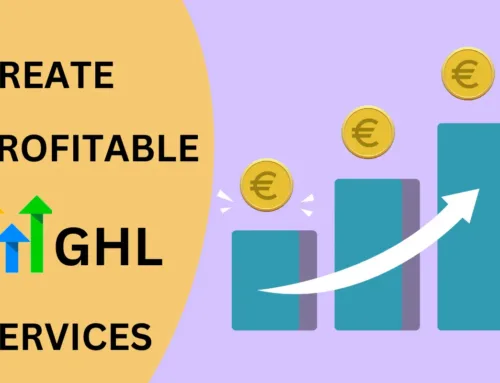Over 1.6 billion people from all over the world shop online through their mobile phones. Nearly a quarter of all US retail sales come through mobile phones.
When you consider these facts, it’s not surprising that many businesses want to invest in mobile application development. Many marketers believe that mobile apps will take a business to the next level.
But is this fact or fiction? Will a mobile application really benefit your business? Here’s an in-depth look at this question:
How Is a Mobile Application Different from a Mobile Website?

It is important to understand the difference between a mobile application and a mobile website. The former is a specific program uniquely designed for smartphones. It is available for download on app stores like the Apple App Store or Google Play.
Mobile applications remain on the user’s phone and sometimes don’t even need an Internet connection to work.
On the other hand, a mobile website is just a regular web page that is optimized for mobile use. It isn’t installed directly on the mobile phone. You need to access it through a browser app installed on your phone.
These two options serve the same purpose, which is to give customers access to your content on their mobile phones.
What Are the Benefits of Mobile Apps?

Mobile app development is a significant investment. You must consider the pros and cons of it carefully before making a decision. Here’s a look at some of the biggest benefits of mobile apps:
- User Experience – A well-designed mobile app will provide a much smoother user experience compared to mobile websites or similar platforms. That’s because these apps are integrated into your phone and designed to be intuitive. It’s easier to browse through different pages, search for products/services, and fill out forms. The smoother user experience attracts loyalty and improves reputation.
- Frequent Use – If people have your app installed on their phones, they’re more likely to use it frequently. Apps provide easier access and a smoother experience, which influences buyer behavior.
- Security – Mobile apps are considered more secure compared to regular mobile websites. Both the Google Play Store and Apple App Store have certain security requirements to protect their users’ interests. Your prospective customers will trust these protocols and trust your brand in turn.
- Loyalty to Brand – An app can encourage loyalty toward a particular brand. Most people are hesitant to switch brands and download new apps unless they’re deeply dissatisfied with the current service. If you have a great app and pair it with good service, you will have a steady customer base.
These are just some of the many benefits of an app. A well-designed one can take your business to the next level.
What Are the Disadvantages of Apps?
Mobile apps provide a lot of benefits, but there are disadvantages that can make you rethink this investment. Here’s a look at some of the disadvantages:
- Mobile app development is expensive because it isn’t as simple as optimizing a website. Simple apps can cost anywhere between $10,000 and $50,000. Complex apps can cost up to $500,000.
- They require regular upgrades and patches to work well, which means there’s a recurring expense to deal with.
- You will need to make different apps for different platforms like Android, Apple, and Windows.
- Apps only thrive if there’s a market for it. Many users download apps and discard them after a single use and may only use three or four apps on a regular basis.
All of these factors show mobile apps aren’t always a great choice, especially for small businesses. Sometimes the expense and inconvenience can outweigh the benefits. It is common for apps to become a financial burden for small businesses.
Does Your Business Need an App?

Many business owners struggle to determine whether their business needs an app. As mentioned above, there are some pros and cons to the decision. Here are some factors that can help you decide:
- Mobile-Friendly Website – If you don’t have a mobile-friendly website, we recommend focusing on that first. Search engines now prioritize mobile-friendly websites, so a responsive site should be your priority too. Once you have a website, you can direct your energy toward app development.
- Do Customers Want It? – This is an important factor to consider. Your customers will request an app if they use your products or services frequently. If you see a demand, it is better to fulfill it and gain customer loyalty.
- Do Competitors Have It? – If your competitors have an app for their business, you might want to build one too. Check the competitor’s apps at the App Store and examine their statistics carefully. How many people have downloaded it? How many reviews does it have?
- Convenience for Repeat Customers – A mobile app is ideal for businesses with repeat customers. Apps are more convenient because users don’t need to input their essential data often. Once they log onto the app, all the user information is readily available.
These factors will help you decide whether or not you need a mobile app for your business. Some businesses can’t function or become successful without it, while others can thrive on just a regular website.
It is important to consider what your business needs while planning for application development.
Factors to Keep In Mind
If you choose to develop a mobile application, keep the following suggestions in mind:
- Make sure you have a great marketing and promotional campaign in place to boost initial interest.
- Invest in a good app, because a poor app experience will alienate customers.
- Maintain your app through frequent upgrades. Lack of upgrades can create a serious security risk.
- Make sure your app has a solid brand presence and looks great.
- Promote your app on your website, social media, and other such platforms.
If you play your cards right, it will be easier to attract customers and encourage them to download your app. It is also a good idea to develop a campaign to ensure customers keep the app.
Want to know what it takes to create an app? Check out this complete guide.




